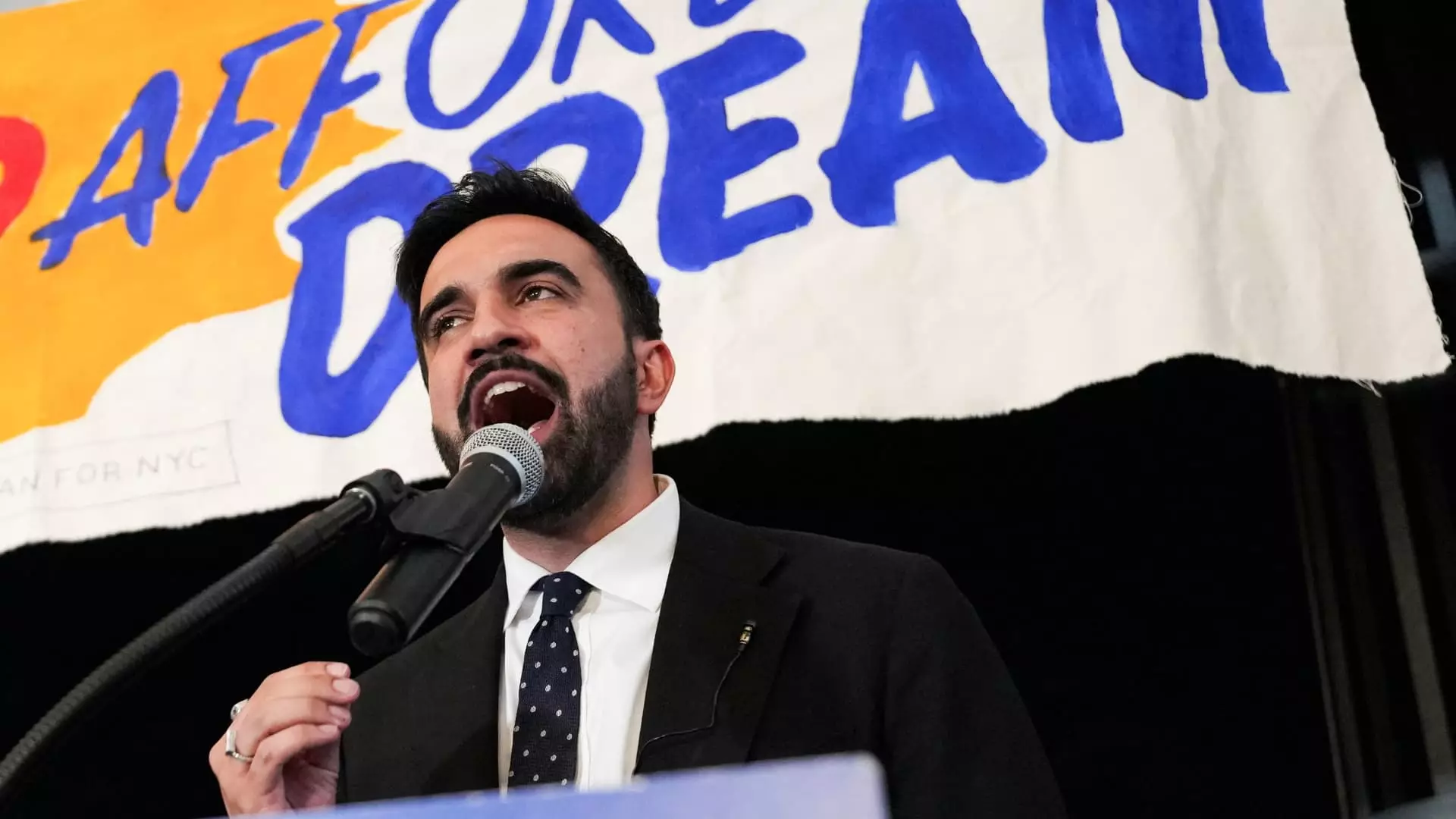In recent political discourse, the use of incendiary terms like “communist” has become a crude but effective tool to discredit opponents and stoke fear among constituents. President Donald Trump’s branding of Zohran Mamdani, a democratic socialist candidate for New York City mayor, as a “communist” is a glaring example of this phenomenon. Trump’s claim isn’t merely misleading—it’s fundamentally dishonest and designed to deepen division rather than foster nuanced debate. Mamdani’s policy proposals, while progressive, are grounded in social democratic ideals rather than any form of authoritarian communism. Yet, the deliberate conflation of these distinct ideologies by Trump not only distorts Mamdani’s platform but also serves to rally conservative anxieties about the very real and nuanced debates around equitable governance in America’s largest city.
Labeling Mamdani as a communist diminishes the legitimacy of his campaign and oversimplifies a complex political landscape. Democratic socialism, popularized by figures like Bernie Sanders and Alexandria Ocasio-Cortez, exists within the framework of democratic institutions and capitalism—with robust safety nets and social justice policies. Trump’s rhetoric exploits the long-standing Cold War-era fears surrounding the word “communist” to paint Mamdani’s ambition in the darkest hues, ignoring the subtleties of Mamdani’s actual policy agenda.
Fear and Misinformation: A Recipe for Polarization
The visceral reaction from some sectors of the business community and conservative media following Mamdani’s initial primary victory reveals an inherent fear of progressive change that is too often dismissed as mere partisanship. The concerns voiced by major investors, including Phillip Laffont of Coatue Management, about migration out of New York City if Mamdani ascends to power are emblematic of a broader challenge—economic elites often resist reform that threatens entrenched interests, even when those reforms aim to foster greater equity.
This resistance, framed through a hysteria-laden rhetoric, ignores the underlying social and economic crises facing New York City: soaring rents, income inequality, and inadequate public transportation. Those realities have made voters receptive to Mamdani’s platform, which calls for a rent freeze, increased taxes on the wealthy, and free bus service—measures that address systemic inequalities but are framed by detractors as radical threats.
By tying Mamdani’s progressive platform to “communism,” opponents conveniently avoid engaging with pressing urban issues and instead foster paranoia, making compromise more difficult. This polarization threatens the possibility of reform rooted in pragmatism and innovation, ultimately harming the democratic process.
The Complex Chessboard of New York City Politics
Another layer of complexity in this mayoral race is the fractured Democratic field and the involvement of multiple candidates with overlapping but divergent constituencies. Andrew Cuomo’s concession to Mamdani after the first round of ranked-choice voting signals a significant shift away from establishment politics. Yet, questions remain about Cuomo’s potential independent run, which could further splinter the Democratic vote.
Meanwhile, incumbent Mayor Eric Adams, himself under a cloud of controversy due to federal corruption indictments and his move to run as an independent, exemplifies the messy political environment of New York City. The DOJ’s abrupt dismissal of charges against Adams, amid allegations of political bargaining involving immigration enforcement, adds a layer of cynicism to the city’s governance and underscores the entanglement of law enforcement and political interests.
These fractures illustrate the precariousness of New York’s political fabric, but also the vitality of its democratic process wherein outsiders like Mamdani can challenge deep-rooted power structures. It is in this context that vigorous, honest debate about policy—not defamation through scare tactics—must take place.
Why Mamdani’s Rise Should Be a Call for Engagement, Not Alarm
Zohran Mamdani’s ascent is not just the story of one electoral upset. It signals an urgent need to reevaluate how we discuss political ideology and governance in urban America. His campaign reflects growing frustrations with inequality and the failures of centrist policies that insufficiently address these challenges. The demonization he faces from figures like Trump and apprehensive elites is not a testament to his extremism, but rather an indicator of how threatened the status quo is by genuine calls for change.
To reject Mamdani outright through hyperbolic and inaccurate labels is to deny New Yorkers and Americans at large the opportunity to explore a different political trajectory rooted in social justice and pragmatic reform. Such rejection aligns seamlessly with a too-common tendency to dismiss left-leaning candidates based on fear rather than critical evaluation.
Ultimately, political discourse should prioritize nuance over alarmism. Mamdani’s campaign offers a platform that demands consideration on its merits—not condemnation based on outdated Cold War rhetoric. Only by transcending these reductive labels can we begin to address the real challenges facing cities today.


Leave a Reply